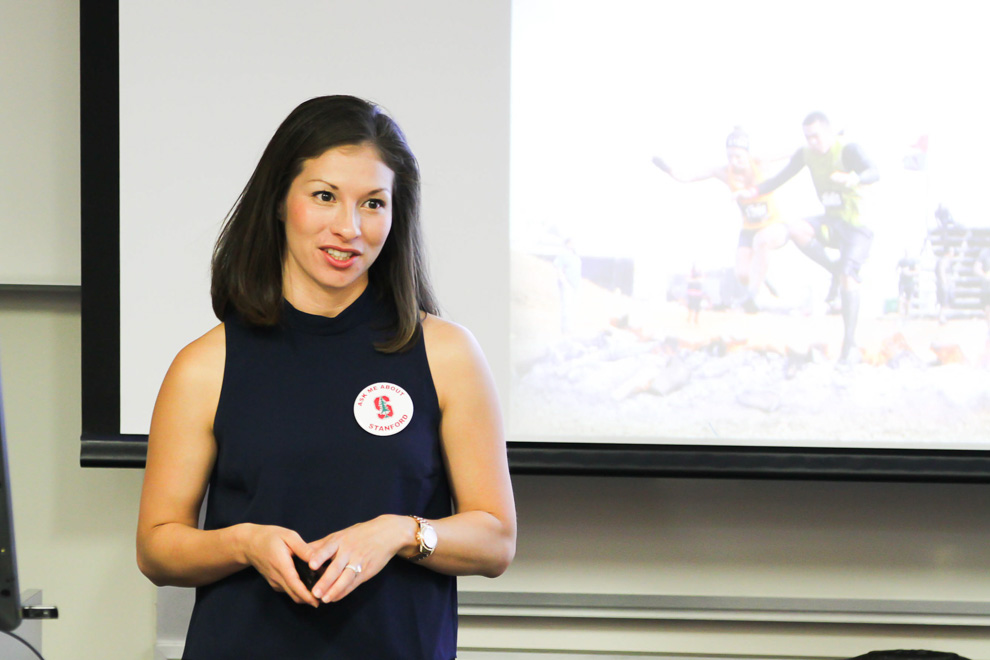The Vice Provost of Graduate Education’s (VPGE) Diversity Innovation Funds (DIF) program is accepting applications until Thursday from graduate students interested in planning projects that advance the goal of increasing diversity in the graduate community.
Last year, the program funded projects ranging from a symposium for underrepresented minorities in STEM to mentoring programs for groups such as first-generation graduate students and Bay Area Black youth.
DIF recipients also noted the sense of community that the program fostered among them, a cohort scattered across Stanford’s graduate programs united by their commitment to diversity.
“We want to develop projects that will enhance diversity and increase a sense of belonging,” said Anika Green, assistant vice provost for graduate education.
The DIF program, which is in its second year, follows up on the success of Student Projects for Intellectual Community Enhancement (SPICE), a fellowship for students looking to promote intellectual community. Green noted that applications for DIF would need to be similarly academically focused, but that recipients would benefit from VPGE assistance in implementing their projects.
“Stanford’s ethos is ‘how do we get to yes?’” Green said. “How do we make [the project] happen?”
Natalie Chavez, who successfully defended her dissertation in biology last week, organized a one-day symposium for undergraduates from local colleges interested in STEM. The event, which addressed diversity in the STEM fields, joined faculty, postdocs and graduate students from diverse backgrounds together with the undergraduates for workshops, presentations and networking.
“A lot of students came up to us afterwards and were appreciative,” Chavez said. “Many said they didn’t have these opportunities offered at their home institutions.”
“[Planning the event] was a lot of work,” she added. “But ultimately, I felt like I was well-supported by VPGE in terms of connecting me with other [DIF recipients], seeking guidance and ensuring that I had all the resources available in order to properly organize and launch this project.”
Civil and environmental engineering doctoral student Jeff Ho Ph.D. ’17 received DIF funds to establish a mentorship program between senior and junior first-generation and/or low-income (FLI) graduate students. Ho, who is a member of the Graduate FLI Partnership (Grad FLIP), noted that although there are relatively few FLI graduates compared to undergraduates, 60 students benefitted from the program.
The Black Graduate Student Association (BGSA) has similarly used DIF funds to tackle the scarcity of underrepresented minorities, specifically Black-identified people, in academia.
BGSA president and fourth-year chemical engineering Ph.D. candidate Michael Reddick applied for DIF to fund “Challenge Accepted,” a mentoring program for local Black high schoolers focused on inspiring them to attend college and eventually, graduate school. Volunteers from across Stanford’s professional and graduate programs participated.
“Being at Stanford, we have a platform and influence,” Reddick said of the program’s potential to change students’ life trajectories.
Ho, Chavez and Reddick all plan on continuing to commit themselves to improving diversity in future years.
“[My DIF project] definitely left a lasting impression on me to want to do projects like this in the future. I am very grateful that the Diversity Innovation Fund exists,” Chavez said.
Application guidelines, examples of past projects and further details on DIF are available online on the VPGE website.
Contact Miguel Samano at msamano ‘at’ stanford.edu.
